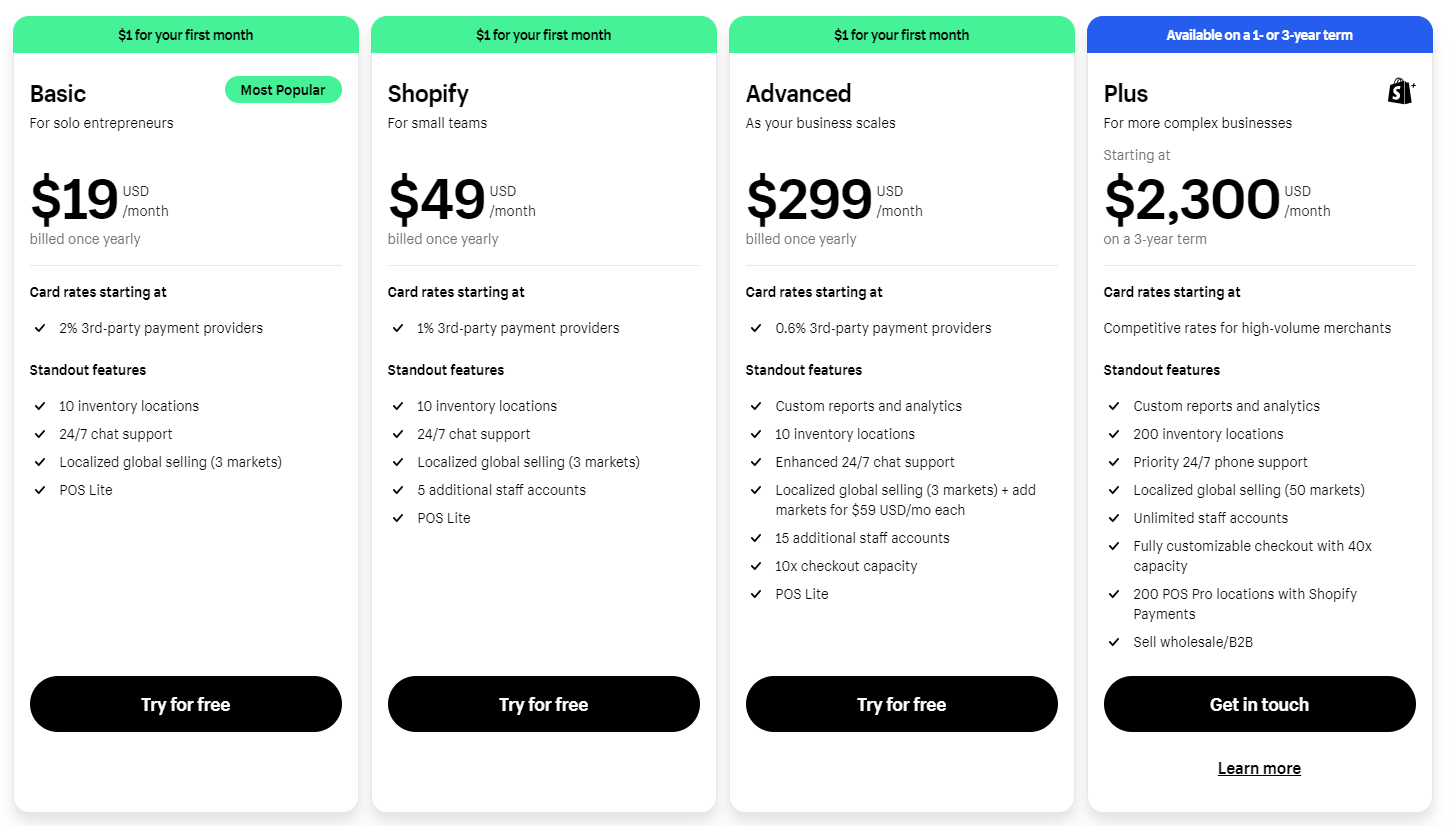
Once seen as slow in aligning with emerging technology, the manufacturing industry is quickly embracing it owing to its many benefits to its operations. It has been integrating SaaS tools, big data, the Internet of Things (IoT), and e-commerce into its practices at a rapid pace.
The IoT alone in the manufacturing sector was evaluated to be worth 50 billion dollars in 2021. It’s growing at an impressive pace of 11.9 CAGR.
As an entrepreneur, the challenge lies in picking the tools for your arsenal that deliver the best results.
We’ve come up with the best SaaS tools to help you grow and expand your manufacturing business in 2024. They include both front-end tools such as the best eCommerce platform for manufacturers and back-end tools that help increase efficiency. Let’s dive in.
1. eCommerce platforms

eCommerce for manufacturers has long been an evasive subject, mostly because they struggled to display their produce online like other industries. However, the industry is adapting to the many different uses of the IoT to use it to their benefit and introduce B2B eCommerce for manufacturers.
In 2021, a whopping 98% of manufacturers are actively using or are in advanced planning to implement an e-commerce strategy. An eCommerce platform for manufacturers easily integrates with your ERP and tech stack to create a seamless flow between your production and sales departments.
eCommerce platforms offer a plethora of benefits to manufacturers:
- Personalized catalog — Manufacturers are able to present clients with a personalized catalog of products based on their needs and preferences. It engages them with your business better as they find what they’re looking for with ease.
- Spare part visibility — By integrating it with your ERP, you’re able to match the spare parts with the products the customers have purchased, no matter how complex. This helps customers find what they’re looking for with ease and gives you cross-selling and upselling opportunities.
- Sales assistance — Hold the customer’s hand through the purchase experience right from helping them find the product they’re looking for to processing the payment. This helps ensure the customer doesn’t leave midway and is supported by you at every step.
- Provide information about products — An eCommerce platform allows you to demonstrate the many uses of a product in a variety of ways — videos, articles, and pictures. It helps attract and engage customers.
2. Enterprise Resource Planning Systems
Enterprise Resource Planning (ERP) systems have emerged as a staple in manufacturing spaces as they manage a company’s day-to-day operations. It puts all your operations under one roof for easy management.
Here are some of the winning features of an ERP:
- By putting all departments on a single platform, ERP provides you with the opportunity to automate repeated tasks for better efficiency.
- It provides you with analytics about your operations, helping you identify issues and opportunities for better management.
- It helps you allocate your resources better to ensure more productivity and manage your finances.
- An ideal ERP contributes to improving your workflow continuity by creating the most optimized path for every operation.
3. Project Management Software
Project management tools allow you to manage several projects at once, giving you better control and maximizing efficiency. They are similar to ERPs but dedicated to solely managing different projects.
This makes them specific and focused on micromanaging every aspect of every ongoing project for the best results. Here are some of the key features and benefits of project management tools:
- It gives you the opportunity to both overview and micromanage your projects at once, helping you stay ahead of your deadlines.
- Both the team members as well as project managers can collaborate over the project management software for seamless communication.
- You’ll be able to budget your projects better by allocating your resources based on what the specific project requires and how much will be left for other projects.
- You are provided with advanced analytics about every aspect of a project to make informed decisions in the future.
4. Quality Management Software

Maintaining a certain quality of your products is crucial in the manufacturing industry as it plays a pivotal role in garnering the loyalty of your customers. Without advanced technology, manufacturers had to rely on analog as well as trial-and-error methods to determine the required quality of their produce.
But now we have quality management software (QMS) tools that help you set the bar for the mandated quality of every product, service, and customer experience you put out. Moreover, it helps you see that your products are meeting the expectations every time.
The software tool will collect meticulous data to ensure what the desired quality should be for each product. It can be done through various methods, such as:
- collecting customer feedback,
- tracking customer satisfaction, and
- analyzing product performance.
Data collected through a variety of mediums helps the QMS to set the standard for each product and service to meet at all costs. This helps you maintain superior quality continuously and impress your customers.
Companies also use their QMS tools to improve their performance steadily and raise the bar with each new product.
5. Roadmap Management Software
In manufacturing, a product simply cannot be manufactured unless there is a road map for it in place. A Product Roadmap Management (PRM) software helps manufacturers oversee effortless production of a product from the beginning till the end.
Here’s how a PRM ensures it:
- it makes sure that no important details are missed in the production of a product.
- It tracks that all the resources are appropriately allocated to the production to ensure no increased costs.
- It ensures that the production goes as planned and aligns with the company’s vision.
- It allows the manufacturer to make data back decisions about the production that can lead to improved results.
6. Customer Relationship Management
A Customer Relationship Management (CRM) software is a crucial tool for manufacturers to stay in touch with their buyers and direct-to-consumer markets.
It performs the following functions to make it easy for manufacturers to attract and retain customers:
- Keeping their contact information
- Tracking their buying patterns to initiate conversation at the right time.
- Coordinating marketing campaigns for maximum impact.
7. Customer service
Providing stellar customer service is key to enhancing customer experience and ensuring their loyalty toward you. As a manufacturer, you need to ensure that your customers don’t face any issues with your product.
If they do, you need to resolve it as soon as you can. Having SaaS tools that tackle customer service helps you provide comprehensive support to your customers in a timely manner, earning their trust and loyalty in the long run.
Use them to stay in touch with your customers and get valuable feedback from them. Having strong customer service at your disposal helps you earn the trust of your patrons as they know they can reach out to you at any moment.
8. Manufacturing Execution System

A Manufacturing Execution System (MES) offers real-time updates about the manufacturing process in progress. It helps you control, monitor, and pivot the process as per your need and follow the path that leads to the most optimized production.
It helps enhance quality by:
- Providing real-time updates about every step of the process.
- Helping you allocate resources better.
- Providing abundant data to make informed decisions.
An MES should not be confused with a roadmap management software. An RMS oversees that the processes go as per the plan while an MES provides real-time updates about a process in motion.
9. Supply Chain Management (SCM)
A Supply Chain Management (SCM) software is an excellent tool to help manufacturers manage vast supply chains with ease. It offers comprehensive features to help you manage every aspect of the supply chain, such as:
- Inventory management
- Demand forecasting with historical data
- Tracking the orders from real-time updates
- Coordination with suppliers
10. Master Data Management
While a Master Data Management (MDM) software tool is not a necessity for small manufacturers, it can be a greatly beneficial tool to keep in your arsenal as you expand. It maintains consistent master data across the organization.
This pertains to data related to products, services, various processes, departments, customers, suppliers, materials, etc. The tool standardizes the data and synchronizes it across systems. This is then used by the company for advanced analytics.
Its access can be granted as per your wishes, though most organizations grant access to employees as per need. The goal is to grant access to data to help employees perform their jobs better and improve the processes.
Manufacturing SaaS tools help streamline and improve processes through data
As the manufacturing industry moves to adopt technology, there are many SaaS tools available that help improve specific elements of the manufacturing process while ensuring overall efficiency.
Use eCommerce platforms to provide your catalog to your customers in an engaging manner. Project management software helps you micromanage different projects under you while an ERP oversees all operations under one roof.
Quality management software helps you set a standard for quality. CRMs and customer service tools help you keep in touch with customers and ensure your loyalty.
Let us know in the comments what SaaS tools you think are the best for manufacturers.









